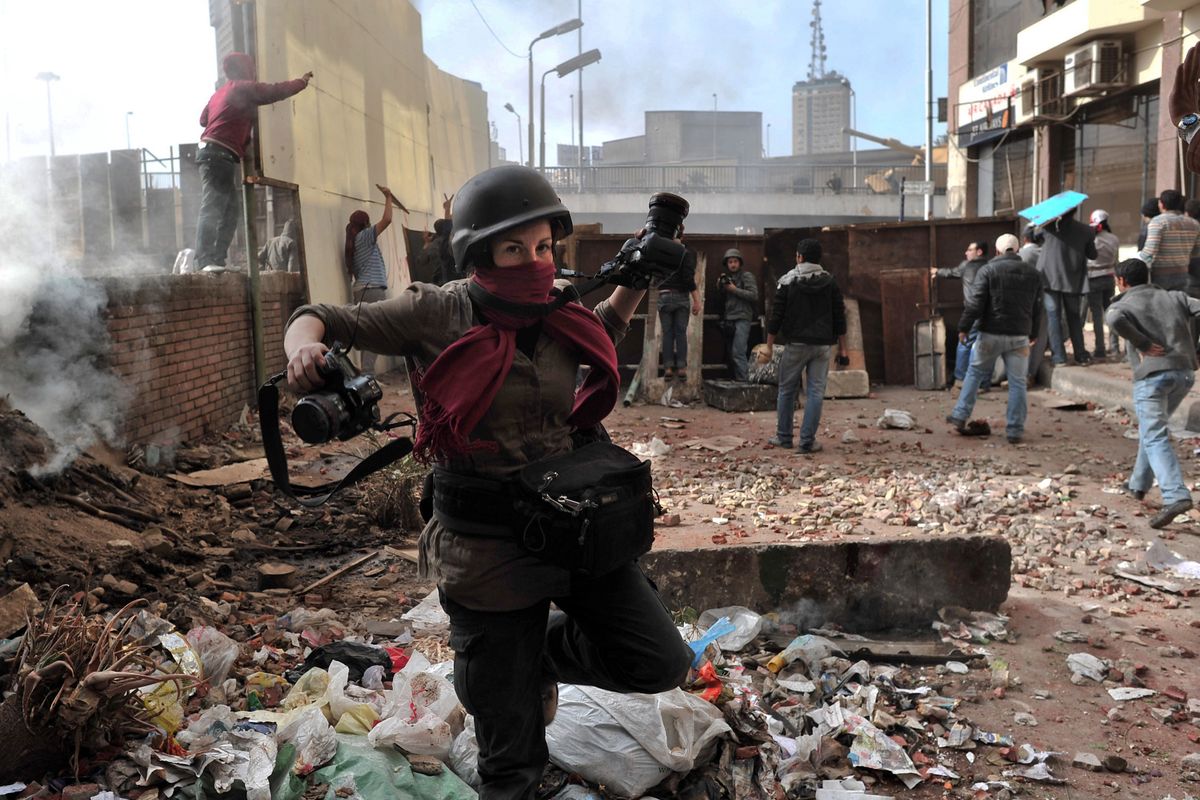Journalist takes risks to ‘witness and inform’

Journalists working in the Middle East and other areas of conflict are increasingly in harm’s way. Two American reporters, James Foley and Steven Sotloff, have been beheaded by the militant group Islamic State in recent weeks. The barbarity is unfathomable.
The gruesome nature of the two killings obviously was intended by the perpetrators to prompt shock, intimidate and publicize a cause.
Journalists are often close-knit, particularly if they are working in foreign lands and cultures that require a shift in their daily mindsets. One of those journalists, Holly Pickett, has roots in Montana and Spokane. Pickett is a first-rate photographer who worked for The Spokesman-Review for five years before moving to Cairo in January 2008 to begin a career as an overseas journalist.
Pickett did not know Sotloff, but she briefly crossed paths with Foley while both were working in Libya.
Pickett always had wanted to spend time overseas, and she had a strong interest in the Middle East. She was working on an application to join the Peace Corps when she was offered a job with the Spokesman in 2002. When she left for Cairo in 2008, she was testing the waters and wasn’t sure how long she would stay. Pickett was determined to see the Arab world herself. She lived in Cairo for nearly five years and in Dakar, Senegal, for six months. Istanbul has been her base since February 2013.
In an email exchange this week, I asked her several questions about her experience and what drives her to tackle such difficult assignments in such dangerous places. Pickett committed herself to the work, she wrote, because “the world is getting smaller and there is a greater need than ever to understand people and events on the other side of the world.”
“The basic purpose of a journalist is to witness and inform,” Pickett said. “I believe in this mission. I have learned that we can’t save the world, but we can help others understand what is happening, and be good people while doing it. It’s really difficult, sometimes dangerous, and often poorly compensated, but it is a worthwhile pursuit. Ultimately, I hope people will care more about events and people far away from them.”
As for stories and events that appeal to her interests, Pickett said, “I am mainly drawn to the impact of conflict on civil society and on civilians. I have photographed the immediate and/or longer-term aftermath of conflict in several countries.”
Pickett spent nearly nine months in Afghanistan over the course of several trips in 2008-2010, covering many angles, including a NATO civilian casualty incident and presidential elections in the restive south of the country. She also examined the basic quality of life: security, health, education and infrastructure.
Pickett was embedded with the U.S. military while in Afghanistan, including once in 2009 with U.S. Special Forces. She worked in Iraq on a seven-week photography rotation for the New York Times Baghdad Bureau.
“I covered street demonstrations and riots in Tunis and Cairo, and the front line (such as it was) in Libya, as well as the aftermath of these Arab Spring uprisings,” Pickett said. “I photographed street violence and the Gezi Park sit-in here in Turkey. I am also drawn to the struggles of refugees and have produced photo essays about Iraqi and Syrian refugees.”
In nearly six years of work overseas, Pickett clearly has experienced a gamut of assignments, logistical difficulties and stress. Pickett acknowledged that her family worries about her, but “I think they trust my judgment. But too many of my colleagues have been killed, injured or kidnapped on the job in recent years for them to be entirely comfortable with what I do.”
Pickett has deep respect for her colleagues and understands the sacrifices they make. “So of course it can be very difficult to lose someone,” she said. “I think it is important to add that the vast majority of journalists killed on the job are not foreign reporters but local ones, the ones reporting in their own country.”
The history of American journalists providing conflict coverage is full of drama and sacrifice, including the work of Matthew Brady, Ernie Pyle, Margaret Bourke-White, Martha Gellhorn, Edward R. Murrow, David Halberstam and countless others. Pickett and her many colleagues do not likely consider themselves heroes of journalism, but the work they do is every bit as important as that of their predecessors.